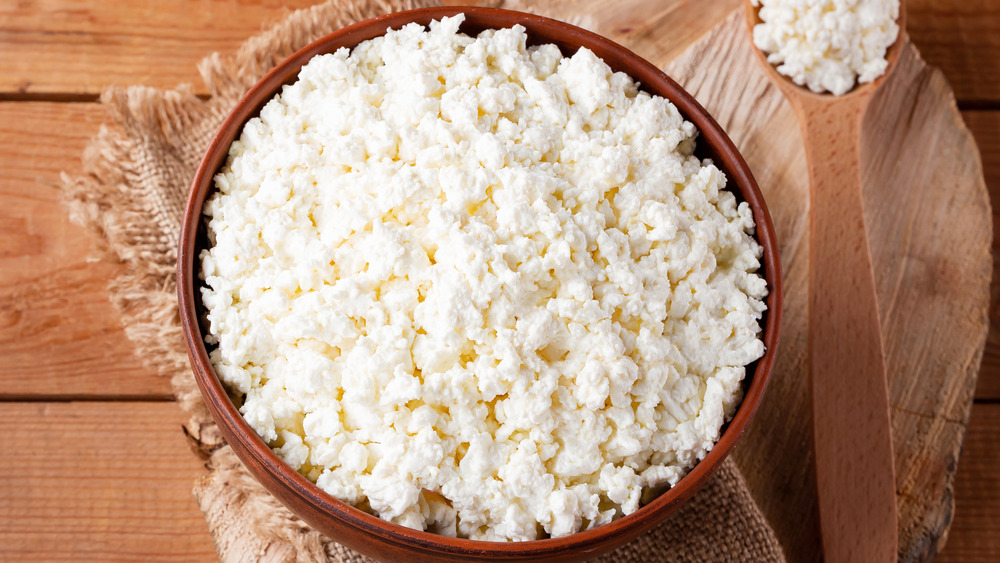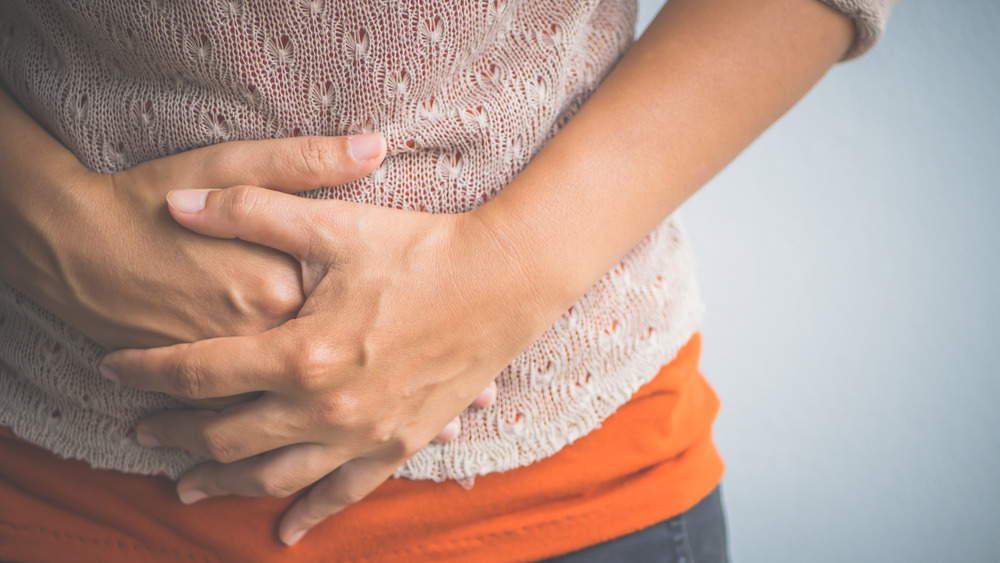What Happens To Your Body When You Try The Cottage Cheese Diet
Diets are a dime a dozen, but the cottage cheese diet stands out for a couple of reasons. For one thing, there is no official cottage cheese diet plan. A few people have published books on their versions of the cottage cheese diet, but each one is slightly different, using a similar base and adding things in to fit their particular needs. And that is a definite upside to the cottage cheese diet. It is customizable, so long as the calorie count stays low and the added sugars are almost nonexistent.
But as with most restrictive diets, the pros are quickly outweighed by the cons, especially if carried out long term. Because when it comes down to it, the basic cottage cheese plan is too limited. No matter which variation is used, the shared base requires participants to eat nothing but cottage cheese for every meal. It's meant to be a crash diet that shaves off a few pounds in only a few days. And for a few days that's fine. But the cottage cheese diet can have nasty effects on your body if you try to use it regularly or maintain it long term.
The most immediate effect — other than a few pounds of weight loss at the start — is likely to be an increase in cravings. A 2015 study in Obesity: A Research Journal found that restrictive diets led to increased food cravings, countering a diet's potential weight loss outcome.
Some side effects are even worse
Cravings are the least of your concerns if you're thinking about taking on the cottage cheese diet long-term. A bigger issue with the diet is a lack of nutrients. While cottage cheese contains some vitamins such as Vitamin C, according to the USDA, it lacks almost all other nutrients. And — worse yet — it lacks fiber. Your digestive system needs fiber to function, and without it you're facing constipation and bloating. You might even develop diverticular disease, which affects the colon (via Harvard Health Publishing).
Half a cup of cottage cheese has only .6 grams of fiber. As Mayo Clinic states, adult women need 21 – 25 grams of fiber a day. Unless you're eating produce too (which will up your calorie count) you'll need roughly 20 cups of cottage cheese a day to meet your fiber needs.
While this is technically possible, it brings up another big downside to this diet: sodium intake. A half cup of cottage cheese has 224 milligrams of sodium. Adult women need only 1500 milligrams a day, according to the National Academy of Sciences. A little under 4 cups of cottage cheese hits that mark, meaning anyone on the diet gets less than a 1/4 of their daily fiber before they max out their sodium intake. After that they'll need to worry about bloating and counterproductive weight gain.
Low-calorie diets in general have some nasty side effects. You might lost weight at first but the long-term effects just aren't worth it. Bloating, digestive issues, and food cravings might do more harm than good.


